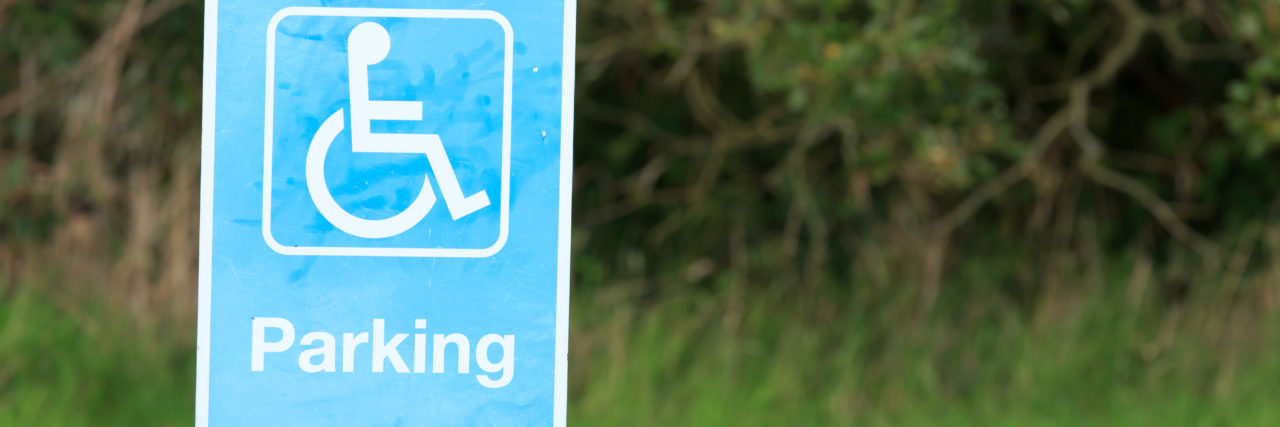We’ve all seen them: those people that park in accessible parking spaces with a placard or plates before appearing to saunter merrily into the store. Or the car that parks in the crosshatch, or in the middle of a spot. These are the things you think of when you hear the words “disabled parking abuse,” right?
Here’s the thing, though: there are a few more parking problems nobody talks about. It’s not just the lack of spaces or misuse. First, what happens when the accessible space just doesn’t work as intended? I’ve lost count of how many times I’ve seen an accessible space and pulled into it only to find the crosshatch is located on the wrong side of my car for my wheelchair lift. Or it might be too narrow for my passengers to get out, or located too far away from the nearest curb cut. In these cases, we can’t simply ask someone to move their vehicle. We’re forced to look for another spot or navigate obstacles we shouldn’t have to.
As someone who uses both a wheelchair and crutches, I deal with accessible parking on a daily basis. Whether I’m running errands or looking for somewhere to park at work, lack of accessible parking spaces and the misuse of the limited ones are common problems.
Growing up in a small town, I never had to worry about parking. Of course, the small fact that I didn’t get my driver’s license until I was 23 years old might have had something to do with it too. But even after I started driving myself around — first through the borrowed use of my parents’ car equipped with hand controls, then using my own minivan — parking was never really something I considered to be important. I’d either find a parking spot, or I wouldn’t. If I didn’t, I was fortunate that I could park in a regular space and walk to my destination.
Not everyone who needs an accessible parking space has that luxury. Accessible parking is more important now than ever before, especially in larger cities — including Spokane, WA where I live now. While major cities are generally more accessibility-friendly, parking is still limited for disabled drivers, to say nothing of the difficulties involved in using public transit. there’s also the terminology. “Handicapped” is considered an outdated, bordering on derogatory term — yet it still appears on accessible parking signs all over the United States.
Finally, to broaden the discussion a bit more, there’s what is arguably the biggest and most visible problem: people taking spaces when they don’t need them. I understand that not everyone who needs an accessible space has a visible disability, such as a wheelchair or walker. The issue here is the people who think they can use a disabled parking space without having the proper identification.
These problems are not going to just go away. So, now comes the million-dollar question: what do we as communities do to solve them? I believe the answer is simpler than you might think.
We educate. That is, we advocate, explain, and above all we don’t let the issue of accessible parking abuse fade into the background. For example, I gently pushed for more accessible parking at my own job. At meetings with other departments and my supervisor over the course of about six months, I repeatedly brought up that not only was the accessible parking farther away from the building than other spaces, it was also more isolated and thus more unsafe. I’m happy to report the company took my words to heart, and there are now three spaces next to the employee entrance reserved for those with mobility conditions.
There are other ways to spread the message, too. I was fortunate enough to discover one of these ways in late 2017, when I was asked by the city of Spokane if I would like to be interviewed on camera about accessible parking. Naturally, I jumped at the chance.
And that’s all there is to it. It might not be easy, but together we can ensure that accessible parking misuse is — no pun intended — curbed and make parking available to all.
Getty image by Richard P. Long.

